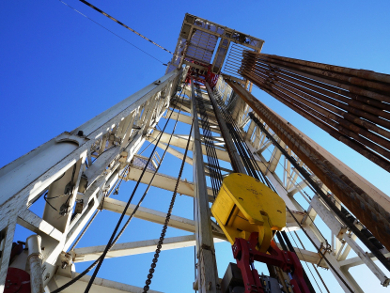Fracking, or hydraulic fracturing, is a process for the extraction of natural gas or oil that has allowed the use of previously non-viable fossil fuel sources. The process uses large amounts of water, mixed with sand and chemical additives, to break apart the shale rocks which enclose the fossil fuels and transport the fuels to the surface. This could cause problems with water scarcity since some regions with shale gas basins also have dry climates.
Avner Vengosh and colleagues, Duke University, NC, USA, have analyzed the water use and the production of wastewater of over 12,000 wells in six major fracking regions of the United States in the years 2011–2016. In almost all cases, the water use per well has increased in this timeframe. The increases range from 20 % all the way up to 770 %. This is partly due to an increased size of the wells below ground, which was allowed by improvements in horizontal drilling. The increased water use goes along with an increase in hydrocarbon production. However, the water use per unit of energy extracted increased from 7–21 L/GJ in 2001 to 13.5–33 L/GJ in 2016. This indicates that the relation between water use and energy production is not linear and that the relative water use has increased over time.
Previous studies of the water use of fracking have focused on the early years of fracking in the U.S. (2011–2014). They concluded that fracking does not use more water than other energy sources. These studies, however, could not account for the increasing relative water usage over the lifetime of the wells. In addition, most of the water remains in the shale formation and is permanently lost from the normal water cycle. Only a small part of the fresh water injected into the ground returns as flowback water. The greater part of water returning to the surface is highly saline, difficult to treat, and is often disposed of underground. According to the researchers, the increased water use of fracking could potentially cause local water shortages in drier regions.
- The intensification of the water footprint of hydraulic fracturing,
Andrew J. Kondash, Nancy E. Lauer, Avner Vengosh,
Sci. Adv. 2018, 4, eaar5982.
https://doi.org/10.1126/sciadv.aar5982




